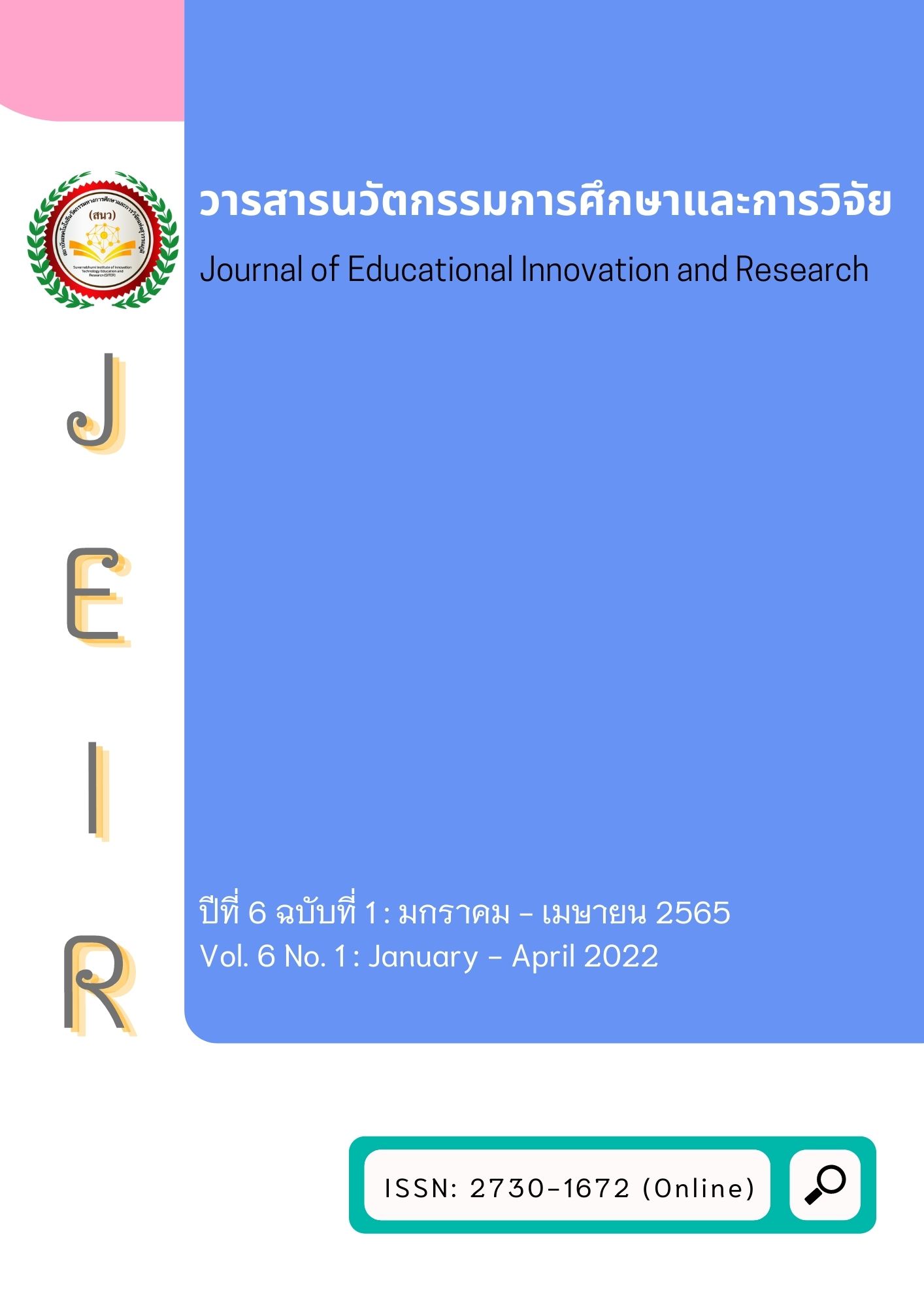Factors influencing low-carbon Travel for Urban residents: A case study of Chongqing city in China
Main Article Content
บทคัดย่อ
Starting with the influence mechanism between consciousness and behavior, based on the theory of planned behavior, this paper constructed a conceptual model of influencing factors of residents' low-carbon travel intention, analyzes the influencing factors of urban residents' use of low-carbon travel style when they travel. In this paper, a sample survey was conducted among 400 residents in Chongqing using a questionnaire, Mplus7was used to analyze the survey data by structural equation model. The results showed that low-carbon travel attitude, low-carbon travel subjective norms, low-carbon travel perceptual behavior control, and individual environmental awareness had a positive impact on Chongqing residents' low-carbon travel intention. In addition, the study showed that individual environmental awareness had a significant positive impact on low-carbon travel attitudes. Finally, it was proposed to optimize the public transport network and improve the relevant infrastructure construction to enhance people's low-carbon awareness and enhance the initiative of the public to participate in low-carbon travel.
Article Details

อนุญาตภายใต้เงื่อนไข Creative Commons Attribution-NonCommercial-NoDerivatives 4.0 International License.
เอกสารอ้างอิง
Ajzen, I., & Madden, T. J.(1986). Prediction of goal-directed behavior: Attitudes, intentions, and perceived behavioral control. Journal of Experimental Social Psychology,22(5),453-474.
Ajzen, I. (1991). The theory of planned behavior. Organizational Behavior and Human Decision Processes, 50(2),179-211.
Chai, Y. W., Xiao, Z. P., & Liu, Z.L. (2011). Comparative analysis of daily travel carbon emissions of households in Beijing based on spatial behavior constraints. Science of Geography, 31(7),843-849.
Chen, K., & Li, H.J. (2014). Analysis of psychological factors of consumers' green travel. Economic Management of East China, 6, 129-134.
Cui, F., & Zhang, X. (2017). Influencing factors of urban residents' low-carbon travel intention. Urban problems,11, 94-101.
Chen, K., & Liang, H. (2016). Factors affecting consumers’ green commuting. Eurasia Journal of Mathematics Science and Technology Education,12(3), 527-538.
HE, Z.Q., JIANG, Y.T. (2019). Study on urban low carbon travel choice based on TPB and VBN integration model. Journal of Arid Land Resources and Environment, 4(33),89-95.
Hang, M. K. (1998). Predicting unethical behavior: A comparison of the theory of reasoned action and the theory of planned behavior. Journal of Business Ethics, 17(16), 1825-1834.
International Energy Agency. (2018). World Energy Outlook 2017 China Special report. Beijing: International Energy Agency.
Jamieson, S. (2005).Likert Scale: how to (ab)use them. Medical Education, 38(12),1217-1218.
Mancha, R. M., & Yoder, C.Y. (2015). Cultural antecedents of green behavioral intent: An environmental theory of planned behavior. Journal of Environmental Psychology, 43(3),145-154.
Peters, G. P., Andrew, R. M., & Boden, T.(2012). The challenge is to keep global warming below 20. Nature Climate Change, 3(1), 4-6.
Sebastian, B., Icek, A., & Peter, S. (2003). Choice of travel mode in the theory of planned behavior: The roles of past behavior, habit, and reasoned action. Basic and Applied Social Psychology, 25(3),175 -187.
Sheng, G.H., Gong, S.Y., & Xie, F.(2019). Theoretical basis and empirical Test of Chinese consumers' Green purchase intention: TPB extension Model based on Ecological values and personal perception correlation. Journal of Social Sciences of Jilin University, 59 (1), 136-147.
Wang, G.M., Li, J.X., & Liao, S. X. (2010). Environmental values and consumers' Green purchase behavior: a study on the Mediation of Environmental attitudes. Journal of Dalian University of Technology (Social Science Edition),31 (4), 41-46.
Wang, Y.R. (2016). Study on residents' low-carbon travel intention model and its influencing factors. Journal of Yunnan University for nationalities (Natural Science Edition), 25 (3), 280-285.
Wang, S.J., & Zhou, H. Y. (2019). Environmental values affect ecological consumption behavior: an empirical test based on intermediary variables. Soft Science, 33(10), 50-57.
Yang, R. R., & Long, R.Y. (2014). Discussion on the theoretical model of influencing factors of urban residents' green travel behavior based on rooted theory. Journal of Wuhan University (philosophy and Social Sciences Edition), 5, 13-19.


